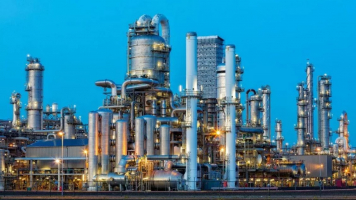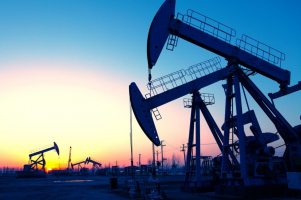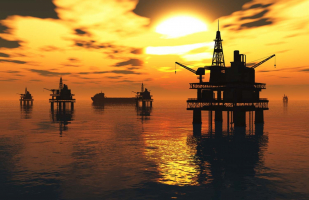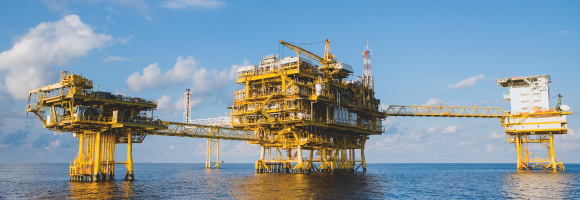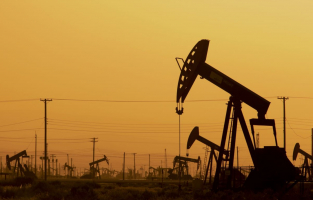Top 7 Largest Oil And Gas Companies In Africa
As the resurgences of the covid 19 pandemic have continued to rage on many parts of the world, some industries have shown signs of recovery. Unequivocally, ... read more...though oil companies have seen rock bottom in 2020, they are set to gain in the coming months of 2021. This article showcases some of the Largest Petroleum Companies operating in Africa.
-
Shell, a large non-state oil company, has responded to the virus's spread by cutting costs and operating costs. It abandoned the Lake Charles LNG project and sold its Appalachian assets to secure sufficient funds to respond to the Covid19 threat. The company still suffered a loss of $21 billion in fiscal 2020. Most of this was due to $180 billion in revenue, which nearly halved.
However, Shell continued to invest in several projects, such as LNG processing in Nigeria. When oil prices recovered, the company repaid its debts with available income and increased its dividend. In 2021, the company sold most of its Canadian assets to Crescent Point Energy for approximately $707 million. the company also signed contracts with Cairn Energy and Cheiron Petroleum Corp for inland Egyptian production.
Shell also continued to develop its renewable energy business by investing in wind energy in the Netherlands and the United States. The company has also been experimenting with floating and air wind projects with seven other major companies, agreeing to several energy transitions with seven other leading companies.
Founded: April 1907
Headquarters: Haagse Hout, The Hague, Netherlands
Market cap: $169.18 Billion As of December 2021
Revenue: $181bn in 2020
Website: shell.com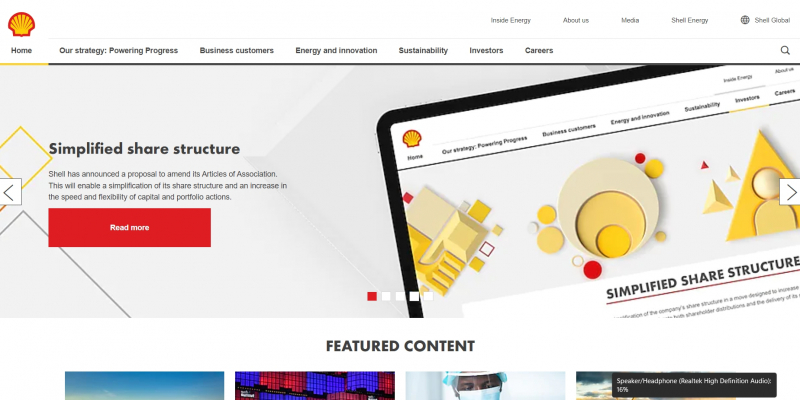
Royal Dutch Shell, https://www.shell.com/ 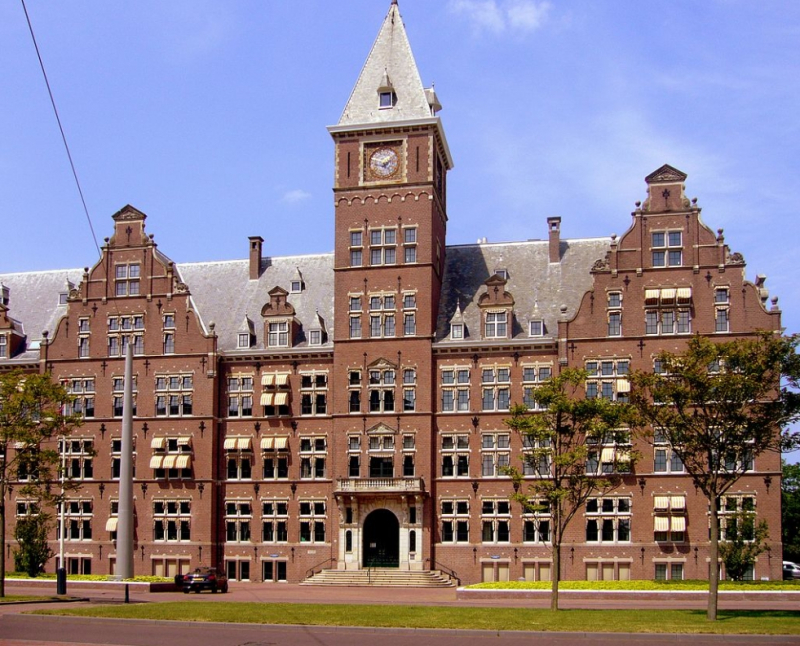
Royal Dutch Shell , https://en.wikipedia.org -
In 2020, ExxonMobil recorded its first quarterly loss since the 1999 merger of Exxon and Mobil. In the fourth quarter of 2020, it posted a loss of $22.4 billion from a profit of $14.3 billion a year earlier. Much of this is due to the devaluation of previously discovered reserves. Since then, rising oil prices have increased the company's assets.
ExxonMobil has removed $10 billion from its investment budget and cut operating costs by $7 billion during 2020 to adapt to the financial challenges of Covid19. As a result, 450 fewer wells were drilled in 2020 than a year ago. However, liquid oil production fell by only 80,000 barrels per day per year, although gas production declined significantly.
ExxonMobil's mining division posted a loss of $20 billion in 2020 from revenue of $14 billion in 2019. While most analysts expect this trend to reverse again in 2021, revenues declined by around $77 billion. The
company has built three major oil fields in Guyana. We continue to develop rentals in the country's seas. New processing and export facilities opened in the United States and construction of new chemical facilities continued.Founded: November 30, 1999
Headquarters: Irving, Texas, U.S.Market cap: $262.37 Billion As of December 2021
Revenue: $179bn in 2020
Website: corporate.exxonmobil.com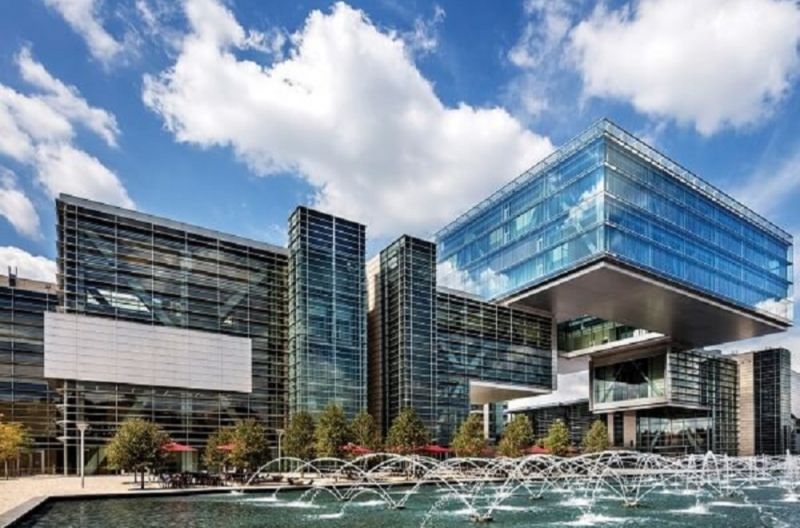
ExxonMobil,https://corporate.exxonmobil.com/ 
ExxonMobil, https://www.hydrocarbons-technology.com -
Last year, Total became TotalEnergies to highlight the company's commitment to broader energy investments. Like BP, the small renewable energy sector has performed well, but oil losses have made 2020 a difficult year.
revenue was $60 billion less than a year ago.Total's net income increased from $11.4 billion in 2019 to a loss of $7.3 billion in 2020. CEO Patrick Pouyanné praised the company's move to lower the break-even point to $26 a barrel, helping it overcome a "double crisis" of Covid-19 and low oil prices. price. We were able to preserve company assets by opening 4,444 reservoirs off the coast of England, Egypt and South Africa. In the UAE, Total and ADNOC have agreed to work together to develop applications for carbon capture, use and storage. Shortly thereafter, the company announced that it would invest in a Norwegian CCS initiative with Shell and Equinor.
In May 2020, TotalEnergies officially adopted a net-zero target for 2050. As part of that, Total acquired 50% of its 2GW solar portfolio from Adani Green Energy, acquiring 20% of the company itself in 2021. Through its subsidiary Total, it will develop a portfolio of 2GW solar panels in Spain. In the UK, France and Korea, companies have teamed up to launch pilot floating wind turbines. Total also announced its intention to enter the vehicle charger market. After signing a contract to install 20,000 chargers in Amsterdam, the charging network was acquired a charging network in London.
Founded: 28 March 1924
Headquarters: Tour Total, Courbevoie, France
Market cap: $129.05 Billion As of December 2021
Revenue:$120bn in 2020
Website: totalenergies.com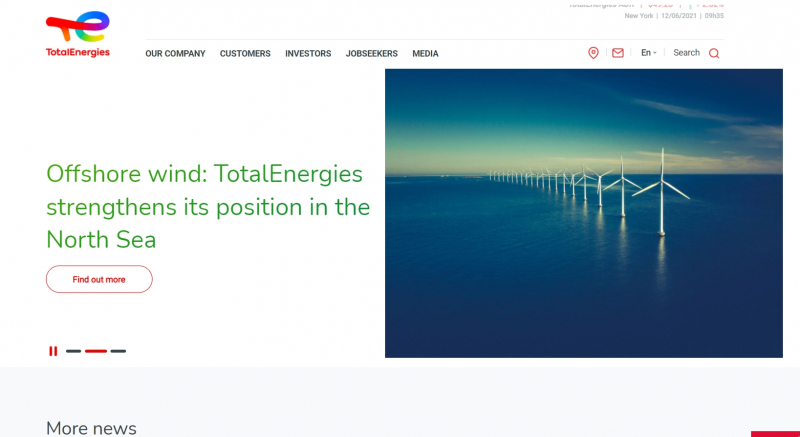
TotalEnergies,https://totalenergies.com/ 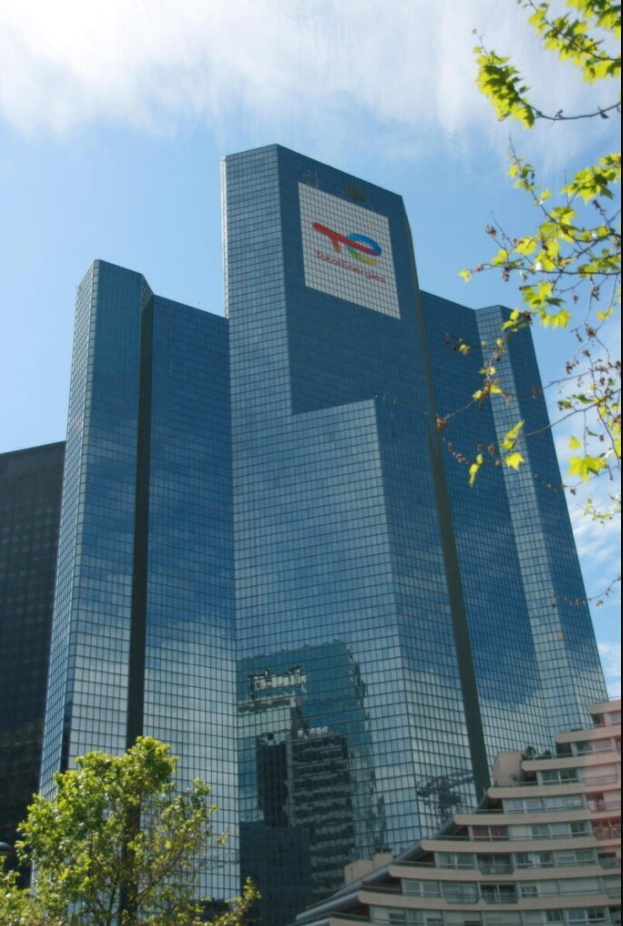
TotalEnergies, https://facimexpo.com -
A key moment for Chevron in 2020 was the October acquisition of US shale oil and gas producer Noble Energy. Due to high production costs, the US shale sector felt the impact of lower oil prices more severely than other sectors. As Noble's margins shrink and debt rises, Chevron seizes the opportunity to purchase its reserves in a $4.2 billion deal.
Meanwhile, Chevron needed to think about finances. The loss peaked in the second quarter of 2020 when the company reported a net loss of $8.3 billion. During the year, the company suffered no significant changes in net production but suffered a net loss of $5.5 billion.
Chevron increased its dividend by 8% when several large companies stopped or cut payments to shareholders in 2020. Although the company's profits have recovered in 2021, they have not yet returned to pre-pandemic levels. The company also converted existing refineries to increase biofuel production. The company also joined the Hydrogen Council, which later acquired a joint venture for hydrogen production and announced plans to expand its own hydrogen production. A collaboration with Algonquin Renewable Energy has also begun the construction of 500 MW renewable generation by Chevron.
Founded: September 10, 1879
Headquarters: San Ramon, California, U.S.Market cap: $222.26 Billion As of December 2021
Revenue: $94bn in 2020
Website: chevron.com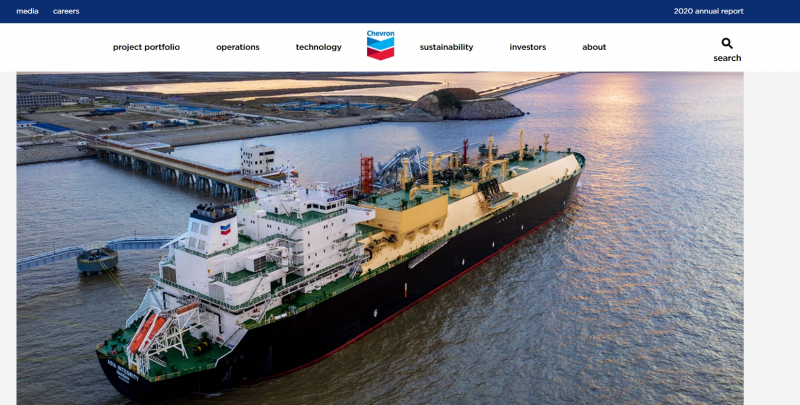
Chevron, https://www.chevron.com/ 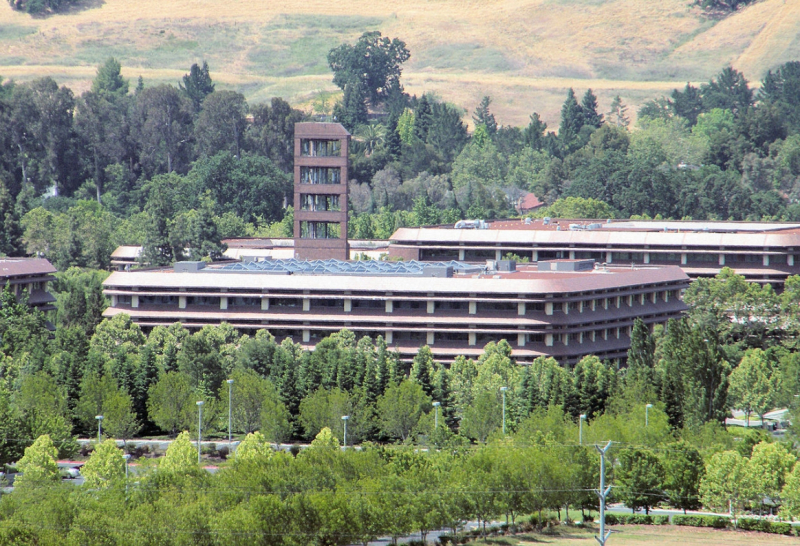
Chevron, https://en.wikipedia.org/ -
Pioneer Natural Resources Company is an American hydrocarbon exploration company headquartered in Irving, Texas. It operates from Cline Shale, part of the Permian Basin's Spraberry Trend, where the company owns the largest area. Ranked #341 in the Fortune 500 list.
As of December 31, 2020, Pioneer Natural Resources's proven reserves were 1.271 billion barrels of oil equivalent (7.78 × 109 GJ), of which 53% were petroleum, 25 % is liquid in its natural gas liquids, and 22% came from natural gas. In 2020, the company produced 341 thousand barrels of oil equivalent (2,090,000 GJ) per day, of which 61% was petroleum, 21% was liquefied natural gas, and 18% was natural gas.
Founded: 1997
Headquarters: Irving, Texas
Market cap: $45.34 Billion As of December 2021
Revenue: $14.31 B in 2021
Website: pxd.com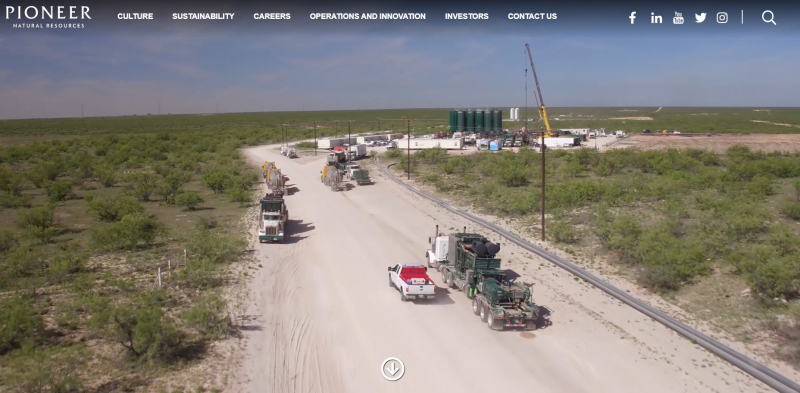
Pioneer Natural Resources Company,pxd.com 
Pioneer Natural Resources Company, https://www.brandt.us/ -
Sonatrach is the national state-owned oil company of Algeria. Founded in 1963, it is known today to be the largest company in Africa, and is often referred to as the first African oil "major". Sonatrach is the 12th largest oil consortium in the world, with 154 subsidiaries operating over the entire oil value-chain from upstream, to midstream, and downstream activities
Sonatrach operates over 3,900 km (2,400 mi) of crude oil pipelines in the country. The most important pipelines carry crude oil from the Hassi Messaoud field to export terminals. Sonatrach also operates oil condensate and LPG pipeline networks that link Hassi R'mel and other fields to Arzew. Sonatrach is expanding the Hassi Messaoud-Azrew pipeline, the longest in the country. The project entails a second, parallel line that will more than double the capacity of the existing line.
Founded: December 1963
Headquarters: Hydra, Algiers, Algeria
Revenue: $23 billion in 2020
Website: https://sonatrach.com/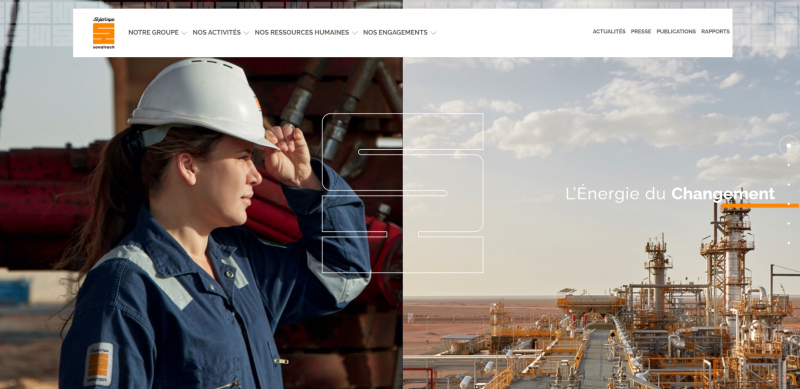
Sonatrach,https://sonatrach.com/ 
Sonatrach Logo ,https://en.wikipedia.org/ -
Sonangol — Sociedade Nacional de Combustíveis de Angola, E.P. — is the state-owned oil company, responsible for the management of oil and natural gas exploration on the subsoil and continental shelf of Angola, and is responsible for the exploration, production, manufacturing, transportation and marketing of hydrocarbons in Angola. They operate in an efficient safe and transparent manner and are committed to environmental protection. The purpose is to promote the harmonious development of the country and reinforce the sustainable use of hydrocarbon resources.
Formed as a public company in 1976 from the Decree-Law No. 52/76 of 9 June, Sonangol is a state-owned company dedicated to exercising the activities of exploration, research, production, transportation, refining, storage, distribution and processing of oil and other hydrocarbons and their derivatives and waste and so is the equipment in their respect, petrochemical and related industries and their marketing.
Founded: 1976
Headquarters: Luanda, Angola
Revenue: $125 million in 2019
Website: https://www.sonangol.co.ao/English/Pages/Home.aspx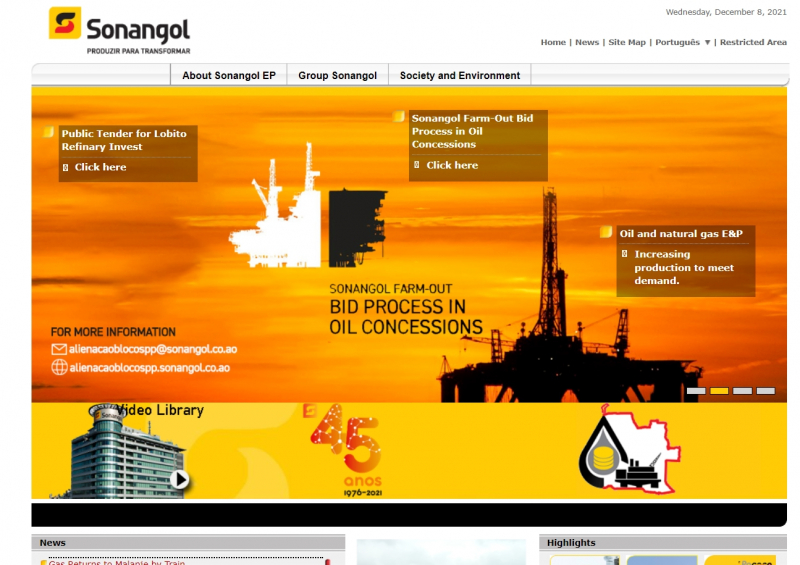
Sonangol, https://www.sonangol.co.ao 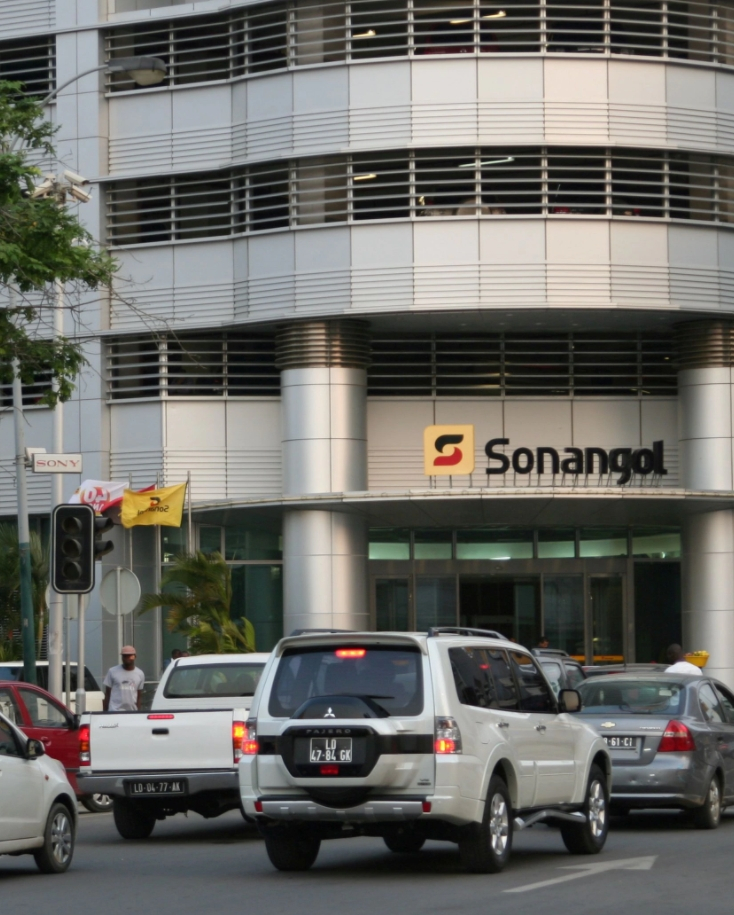
Sonangol,https://www.reuters.com/









